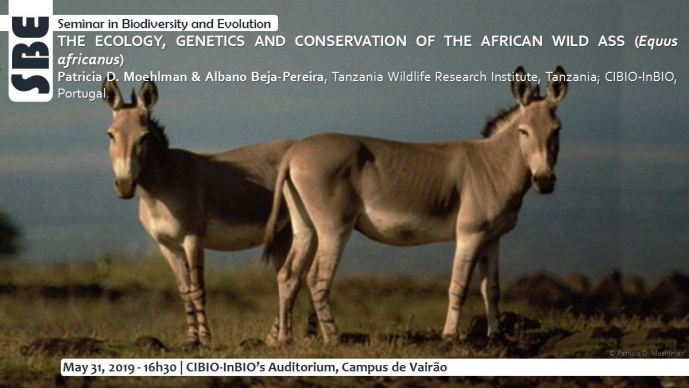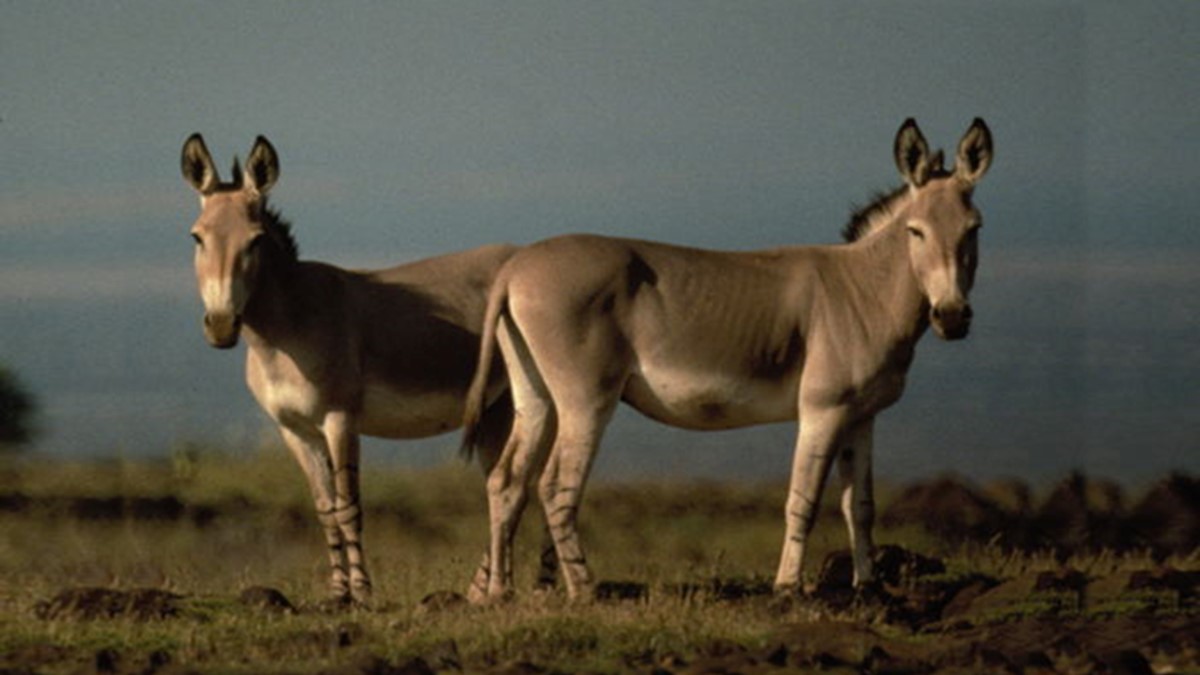THE ECOLOGY, GENETICS AND CONSERVATION OF THE AFRICAN WILD ASS (Equus africanus)


African Wild Ass (Equus africanus) is the world's most endangered equid. It persists in one of the harshest climates and terrains in the world, the Horn of Africa. They live in small temporary groups that typically are composed of fewer than five individuals. The only stable groups are a female and her offspring. The African wild ass exhibits the mating system and social organization that is typical of equids that live in arid habitats. The African Wild Ass is polyoestrus and foals are usually born from Oct to April. Females typically have a surviving foal every other year and natality correlates with rainfall during the period of gestation. Modelling of the Eritrean population viability indicates that its long term survival is dependent on individual longevity and age of first reproduction. Maxent modelling of suitable and optimum habitat indicates that the most critical factor is distance from water and that distance from settlements and herbaceous cover are also important. Population genetics data revealed the Eritrean population of Denkelia as the most diverse population. It also showed recent bilateral geneflow between Afdera (Ethiopia) and Denkelia (Eritrea) populations, stressing the importance of maintaining an open corridor to maintain connectivity between populations borders. No signs of recent population bottlenecks were found for the tested populations. The major threat to the African Wild Ass is hunting for food and medicinal purposes, particularly in Ethiopia and Somalia. Local people have a critical role in the conservation of this critically endangered species and management plans need to be done with their participation and the incorporation of their needs and aspirations
Patricia Moehlman has done long-term research on the Behavioral ecology of canids and equids. Since 1977 she has been deeply involved in the conservation of wild equids. Patricia co-chairs the IUCN/SSC Equid Specialist Group and is a member of the EcoHealth Alliance Science and Policy Advisory Group. Patricia also holds the position of research affiliate at the Tanzania Wildlife Research Institute and at Columbia University in the USA. She has been actively coordinating the Equus africanus conservation program in Eritrea and Ethiopia during the past three decades and is an adviser to Canid Taxon Action Group.
Albano Beja-Pereira is Auxilary Professor at the Department of Geosciences, Environment and Spatial Plannings of the Faculty of Sciences, Unviersity of Porto, and Principal Investigator at CIBIO-InBIO, where he leads the Livestock Genomics and Conservation (AGRIGENOMICS) Research Group.
[Host: Francisco Álvares, Conservation Genetics and Wildlife Management]
Image credits: Patricia D. Moehlman